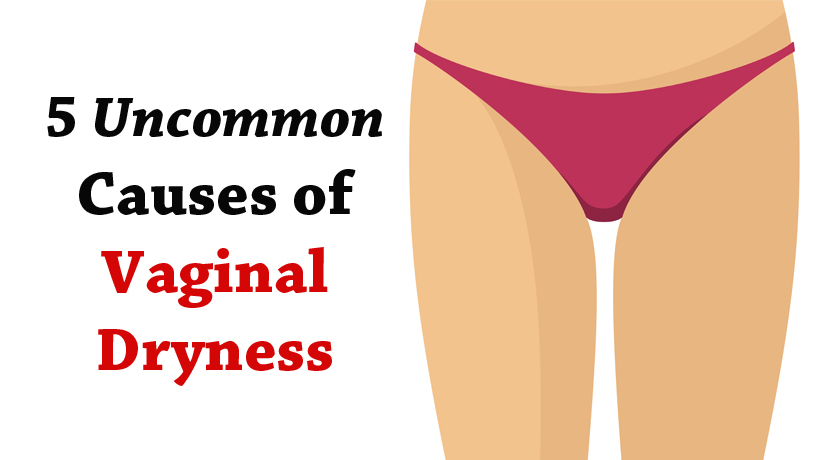During most of a woman’s life, a thin layer of fluid lubricates the walls of the vagina. This keeps the vagina elastic and free of dead cells, according to Women’s Health Concern, a subset of the charity British Menopause Society. The acidic nature of this fluid also keeps the vagina healthy by preventing yeast infections.
Not producing enough of this fluid is called vaginal dryness, which can be a frustrating barrier to a woman’s sex life. Vaginal dryness is a common symptom of menopause since decreased levels of estrogen production can cause it. Around 58% of women 51-60s old experience vaginal dryness, says Women’s Health Concern.
Yet age isn’t the only factor for vaginal dryness. These causes aren’t as well-known, but they could also affect vaginal moisture for adult women of any age.
Chemicals
Women’s health experts often say the vagina is a “self-cleaning oven,” meaning its acidity can take care of its own maintenance. Being proactive about “cleaning” the vagina by using feminine sprays, douching, or using harsh soaps can actually limit vaginal lubrication, says Women’s Health Concern. Women may unintentionally expose their vaginas to other harsh chemicals, such as swimming pool and hot tub chemicals, that may affect feminine hygiene.
Medication
Some medications may affect lubrication as a side effect. Certain allergy and cold medications, as well as antidepressants, may dry out mucous membranes, including vaginal tissues. Other medications may directly affect hormone production, such as the anti-estrogen medications used to treat uterine fibroids or endometriosis.
Low estrogen
Estrogen doesn’t just decrease during menopause. Breastfeeding mothers, those who have had a hysterectomy, and those who have received chemotherapy might feel fluctuating estrogen production.
Autoimmune disorder
Sjogren’s syndrome is an autoimmune disease where the white blood cells attack the glands that are in charge of making moisture. Dry eyes and dry mouth are some of the most common symptoms, but women may also experience vaginal dryness, as well, says WebMD.
Premature menopause
Menopause usually happens in a woman’s mid-50s, yet around one percent of women experience premature menopause, says Women’s Health Concern. This is also called premature ovarian insufficiency.
Treatment
Avoiding common irritants that may cause vaginal dryness, like perfumed soaps, can help prevent vaginal dryness. Sometimes, taking more time for foreplay during sexual intercourse can help produce enough lubrication for a woman who can’t produce it as easily.
Creams to treat skin irritation, lubricants, and moisturizers are some topical treatments for women. If a woman is suited for estrogen therapy, she might try local estrogen. This is available as tablets inserted into the vagina that help correct the vaginal pH and regulate bacteria. Women’s Health Concern says local estrogen treatments has fewer risks than hormone replacement therapy. However, you should always consult your doctor to find the best plan for you.
Sources:
https://www.webmd.com/women/guide/vaginal-dryness-causes-moisturizing-treatments#1
https://www.womens-health-concern.org/help-and-advice/factsheets/vaginal-dryness/
https://www.health.harvard.edu/womens-health/dont-ignore-vaginal-dryness-and-pain
https://www.menopause.org/for-women/sexual-health-menopause-online/effective-treatments-for-sexual-problems/vaginal-and-vulvar-comfort-lubricants-moisturizers-and-low-dose-vaginal-estrogen
https://www.webmd.com/a-to-z-guides/sjogrens-syndrome#1



